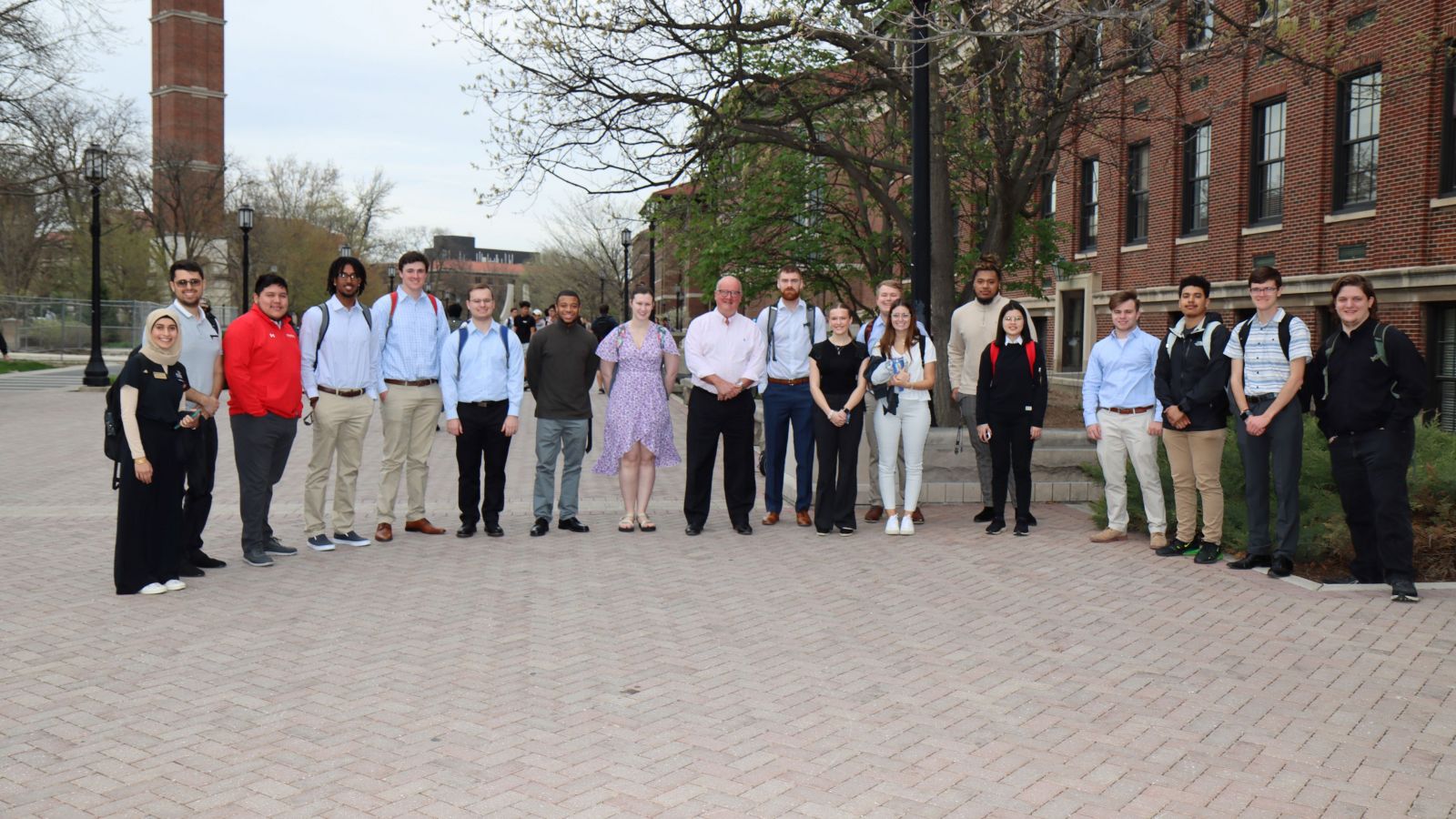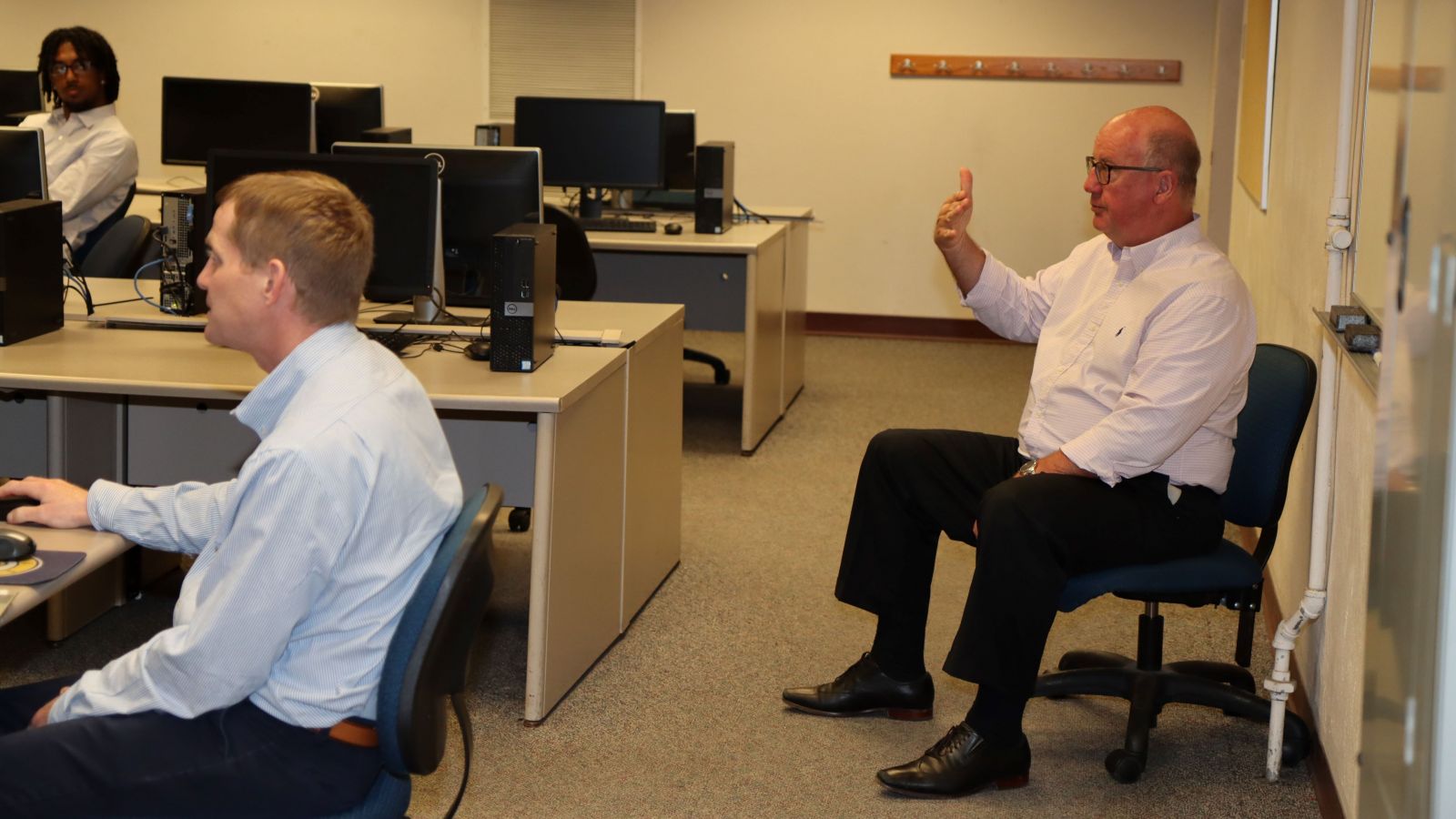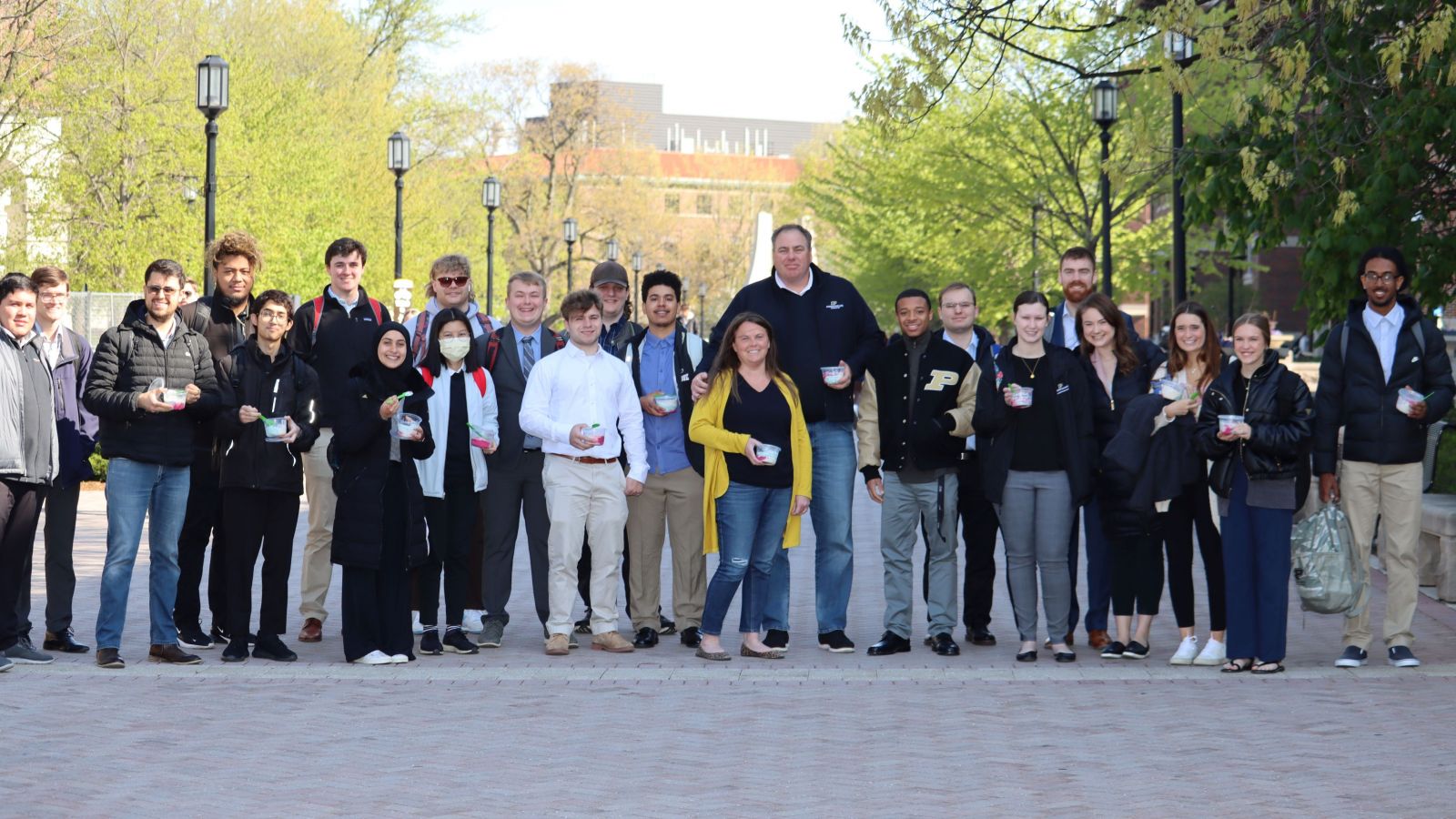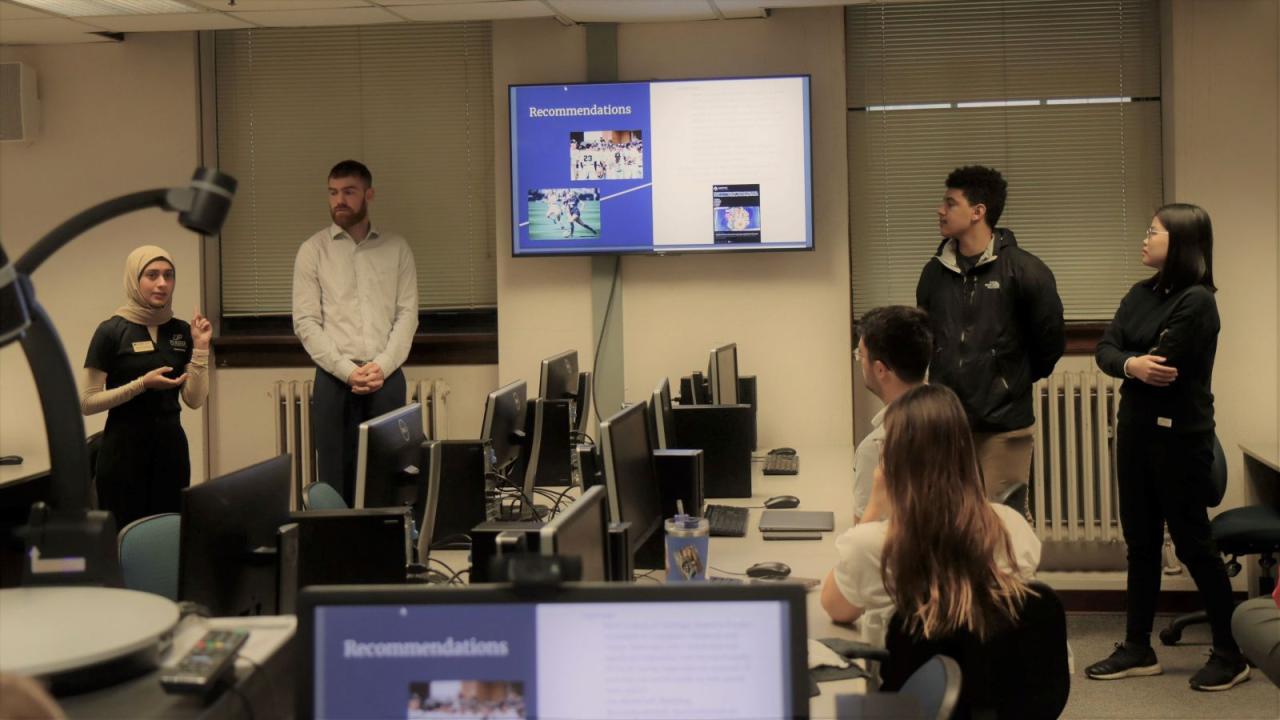A new cohort of students from across Purdue University are learning how to use their education to help local businesses, while becoming ethical and sustainable consumers along the way.
James Tanoos, associate professor of practice in the School of Engineering Technology, has envisioned the course IET 34300 (Technical And Service Selling) as an opportunity to show students the realities of running a business. He’s done so by partnering with two business owners in the area who, through their own resourcefulness and experience, have managed to partner with larger nationwide organizations while retaining a focus on the Purdue experience.
Those two businesses are Boilermakers Country (a sports news outlet covering all things Purdue, partnered with Sports Illustrated Media Group) and the West Lafayette branch of Everbowl (a California-based superfood restaurant launched near campus with the support of Drew Brees and other Purdue football alumni). Boilermakers Country is run by Tom Brew, an esteemed sports reporter in the state of Indiana and beyond, and Everbowl is run by Kelly and Brooke Kitchel, the owner-operator team with a proud history in small business as well as Purdue sports.

Hands-on consultation experience
Tanoos put his students in dialogue with these business owners in an unorthodox way. Brew and the Kitchels shared their industry experiences with the class at the beginning of the semester. Rather than simply getting a lecture, the students took this information from the two businesses and effectively operated as consultants. In imitation of how a consulting contract might work, the owners of both businesses gave the class a rundown of its business operations, and then identified a key problem area that they would like the class to help them solve.
In Brew’s case, he had an inkling that Boilermakers Country stories could have a much wider reach on the web, and he wondered if social media strategy was part of the equation.
“We were only a single season into the site when COVID hit,” Brew said. “So 2020 was actually a deceptively good year for traffic [to Boilermakers Country], because we were the audience’s eyeballs during a season where they couldn’t be in the stands themselves. But now I think we have to modify the strategy because those conditions have changed.”
For the Kitchels, they quickly understood the need to deal with the ebb and flow of the population in a college town.
“We asked [the class] to help us find ways to keep relevant to the people who stay in town, even when we’re between semesters,” Brooke stated. Kelly also said, “Since we’re new here – we just opened last September – we also wanted to get the student perspective on where they want to go and how they choose to eat.”
“I think there’s mutual benefit, because we’re trying to help them solve a specific problem, but in the process we also learn how to do a business pitch,” explained Ellie Overton, a senior majoring in financial counseling and planning. “That’s important for a lot of us who are going into fields where you have to be able to pitch yourself to a client as a trustworthy partner.”
Businesses and students meet their goals together
Purdue Polytechnic students could be found chatting to Brew after their final presentation to him, where they used data-driven strategies to help him devise a social media plan alongside a SWOT analysis (strengths, weaknesses, opportunities and threats) for his business. In their follow-up conversation after class, Devon Harmon and Zahra Al-Awadi, seniors in electrical engineering technology, were discussing how Brew could enhance his reach across all major social networks.
“Even with a very basic promotion or giveaway, you can make a requirement that everyone follows you on multiple channels to be entered in the raffle. You can just walk people from Facebook, to Instagram, to Snapchat to Twitter in one go,” Harmon said.
Al-Awadi added that “People don’t even need to read a full story when they first encounter you. If you can just get that name recognition, even on Instagram which is not as text-heavy, they’ll know from then on that they can rely on you for sports news.”

While they come from STEM-oriented majors, both Harmon and Al-Awadi indicated that getting real-world experience with marketing, business planning and consultation is crucial for their careers. Al-Awadi (soon to be employed at Allison Transmission in Indianapolis) stated that “[Procuring clients] is really the first step of the supply chain, even from the engineering perspective. And without the consultation component, or market research, all of these things that go hand-in-hand with actual production, you basically don’t have engineering as we know it.”
“There are lots of engineering roles where you’re also on the front-end, interacting with customers. I’ll be working closely with people in that context. So not only learning the communication skills, but also being able to understand what they need and how to help them is required. [There’s] also a connotation that most engineers are quiet and aren’t very social. So taking these classes is a means of breaking that stigma,” Harmon (soon to be employed at Olympus Controls near Dallas, Texas) said.
Outcomes
For Tanoos’ part, he selected Brew and the Kitchels’ businesses simply because he was a fan of them.
“I was a consumer at Everbowl, and I was consuming sports news from [Boilermakers Country] too,” said Tanoos. He wanted his students to give them valuable insights and ideas for how they could make their businesses work better.
Both Brew and the Kitchels seem to believe that the students have done just that. Both mentioned that, by itself, the vast amounts of anonymous survey data from the wider Purdue community provided by the students gave them a window into outside perspectives on their business.
Tanoos stated that, “A lot of us are increasingly preferring to spend our money or our time locally. People want to reinvest in the community based on what they buy and how they spend their time. [I] think that if more people have that attitude, that money will be reinvested locally. And that will have positive impacts on the community, whether its local schools or infrastructure, or if its Everbowl jobs that employ Purdue students or the staff writers that Tom employs. That will enhance the community for everybody.”

Additional Information:
- The School of Engineering Technology
- Boilermakers Country (Tom Brew’s business, affiliated with Sports Illustrated)
- Everbowl at Purdue University (Brooke and Kelly Kitchel’s business, founded alongside Drew Brees et al.)
- Electrical Engineering Technology (School of Engineering Technology major)
- Supply Chain and Sales Engineering Technology (School of Engineering Technology major)

